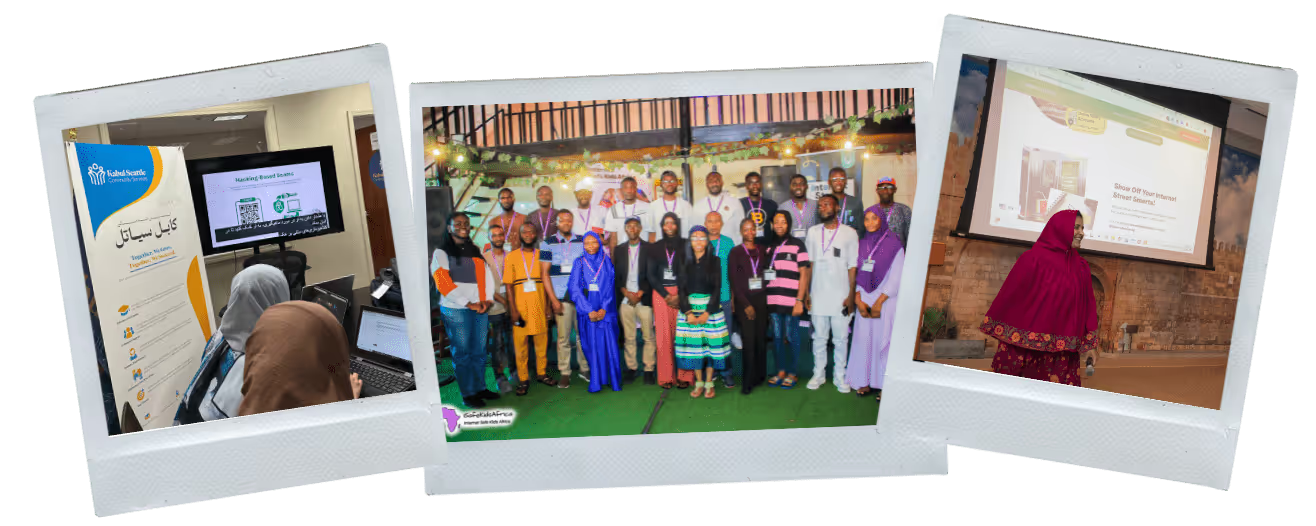?
Ut enim ad minim veniam, quis nostrud exercit minidon ullamco nostrud enim ad.
Ut enim ad minim veniam, quis nostrud exercit minidon ullamco nostrud enim ad.
Research Brief
Download the Full Research Brief
Enter your email to access our full research brief.
.avif)
Introduction
The cybersecurity industry has a people problem. For decades, digital safety education has been dominated by technical experts, jargon-heavy materials, and rigid delivery models. These top-down approaches often fail to reach those most at risk: marginalized communities, low-income families, older adults, and people living at the edges of digital access.
At Cyber Collective, we believe digital safety should be understandable, accessible, and most importantly rooted in care. That’s why we created Internet Street Smarts (ISS) — a free, open-access curriculum that explains essential cybersecurity concepts in plain language and makes space for real conversations about online harm, privacy, and resilience. It’s designed to be flexible, adaptable, and shareable.
However, we recognize that a curriculum cannot completely replace conversations. And no matter how strong our materials are, we cannot deliver them everywhere, nor should we. Cyber Collective lacks the cultural fluency, physical presence, and funding to reach every community directly — and we believe communities themselves are best positioned to lead these conversations.
That’s why we launched the Internet Street Smarts Microgrant Program: to test whether small, trust-based grants to community leaders could not only extend the reach of our curriculum but deepen its impact by embedding it in localized, culturally resonant contexts.This report presents our findings.
Reach & Engagement
took the ISS course through this pilot
were held across 7 countries: United States, Kenya, Zambia, Nigeria, Turkey, Thailand, and Australia
Participants spanned urban and rural settings, with age groups ranging from young children (9) to older adults (50).
Watch parties varied in size and format, from a 12-person session at a mosque in Minneapolis to a 147-person youth gathering in rural Kenya.

Download the Full Research Brief
Enter your email to access our full research brief.